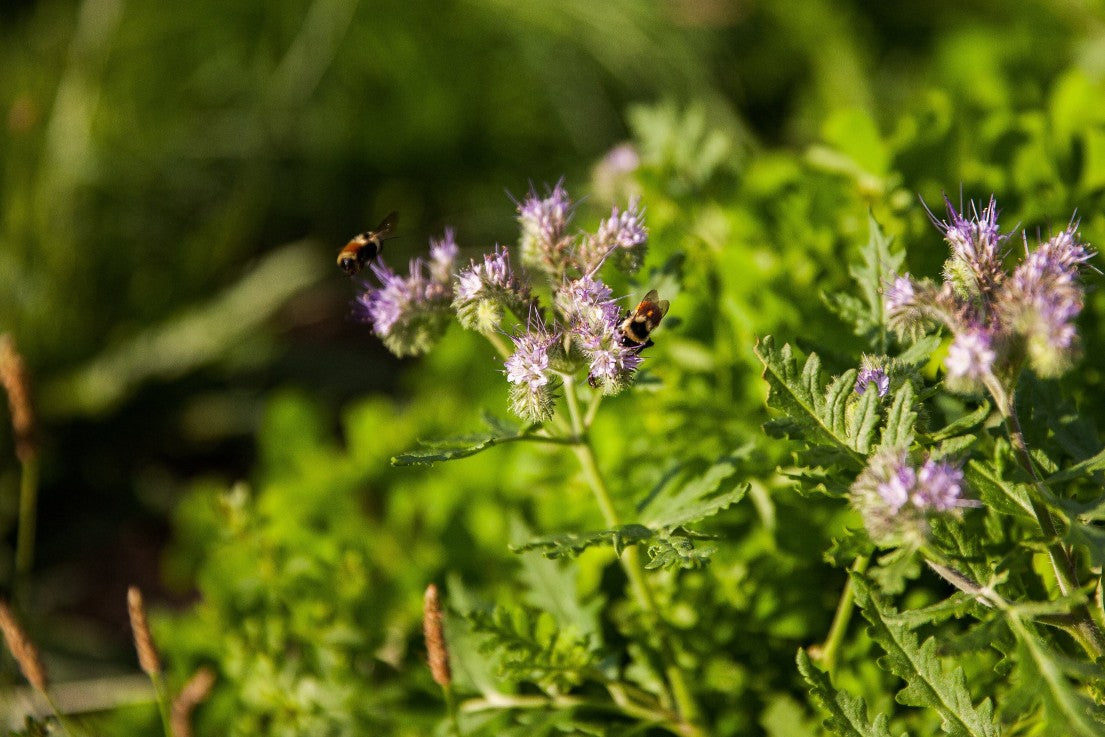
Companion Planting at Lily Hill Farm
Companion planting is the strategic planting of fruits, vegetables and herbs to improve your farm or garden's ecosystem without adding any pesticides or chemicals. It's a safe and natural way to enhance crops, reduce pests, attract pollinators and improve soil (and for us, it's an excuse to grow a lot of pretty - but functional - flowers!).
Companion planting is not a new concept. Native Americans have long used the "Three Sisters" method of interplanting corn, beans and squash. The corn gives stability to bean vines, the beans fortify the soil with nitrogen, and the leafy squash protects from predators and regulates moisture in the soil.
We use companion planting techniques at Lily Hill Farm and you can use them in your own garden whether you're growing cannabis or vegetables.
Cover Crops
Cover crops act as a living mulch: they retain moisture and nutrients in the soil which lessens the need for water consumption and fertilizer. They compost in place after the growing season to enrich the soil for the following year. We mainly use a mix of clovers, peas and oats. You may have seen farms that lay plastic down under the crops. This is done to keep weeds at bay and while it's effective, that sure is a lot of plastic! Our cover crops do the same job AND they improve the soil. Win-win!
Nitrogen-Fixers
Nitrogen is a common deficiency in cannabis gardens (yellow or discolored leaves are a common indicator that a plant wants more nitrogen!). Nitrogen-fixing plants pull nitrogen from the atmosphere and transfer it to the soil. The clover and peas we plant as cover crops also act as nitrogen-fixers; a few others we love are yarrow and comfrey.
Beneficial Bug Attractors
There are plenty of insects that are welcome guests at the farm! Ladybugs, hoverflies, aphid lions and parasitic wasps are all helpful bugs that prey on other bugs that might damage our crops. They are attracted to plants such as phacelia (pictured above), yarrow, chamomile, calendula and goldenrod.
Pest Deterrents
While there are some bugs we want to see on our farm, there are plenty that we don't! The good news is that many plants that smell amazing to us humans actually deter certain bugs. Aromatic plants such as peppermint, lavender and chamomile help keep pests at bay. We love to plant sunflowers in our fields because they look stunning and they lure insects away from the hemp.
Terpene Boosters
Home cultivators, take note: Certain plants, when planted alongside cannabis, can actually boost its terpene content! Chamomile, yarrow and basil all make excellent terpene boosters (while being lovely additions to any garden).
Do you use any of these companion-planting techniques in your home garden? Tell us about it in the comments!

